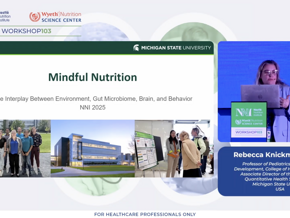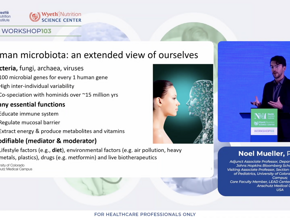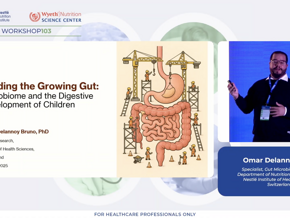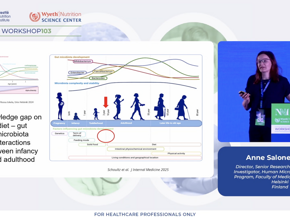News
Breastfeeding: One Of The Strategies To Attain MDG 4
Growth & Development
Gut Microbiota
Low Birth Weight
Malnutrition
4 min read
By Dorothy Chanda
One of the strategies to reduce infant morbidity and mortality is through promoting and supporting breast feeding. It should be encouraged that infants be exclusively breast fed for the first six months (Ebrahim 1982, MOH 2010).
The implementation of the breast feeding strategy is facilitated where breast feeding policies exist, guidelines are formulated to great benefits. The components of the guideline which include health education in respect of breast feeding should involve all stake holders viz-a-viz health professionals, pregnant women, nursing mothers and community support groups etc. both in the urban and rural areas.
The biochemical and physiological uniqueness of breast milk should be highlighted. It has immunological constituents which protect the infant against infection and allergy. These agents are immunoglobulin referred to as IgG, IgA, IgM, IgE and IgM. These have specific and unique roles in protecting the infants at a time when it is quite vulnerable to infective and allergenic agents in its environment.
The fat and protein contents are not only PRESENT in the right amount but are specifically adapted to the needs of the child. There is more whey protein in breast milk compared to what obtains in cow’s milk which has more of casein. Whey protein is better digested by the baby than casein.
The fat in breast milk has among other features omega-3 fatty acid. The benefit of this in cognition has been well - established.
The mineral composition is uniquely adapted to the physiology of the baby. The sodium content is at such a concentration to meet the glomerular filtration rate and possibly discourage high sodium content in blood which may be an antecedent to raised blood pressure. Related the protein mentioned above is the phosphorus content which is low compared to what obtains in cow’s milk. High phosphate content depresses calcium content with consequent hypocalcaemia.
Though Vitamin D, Iron and Fluoride contents of breast milk are low they are biologically readily available. Furthermore the role of sunshine for vitamin d nutrition should not be ignore and nature may be protecting the infant by not incorporation too high iron content in the breast milk from the point of view of infection
This communication cannot be complete without mentioning bonding and breast feeding. The significance of this is far reaching in the light of contemporary observations. Mothers have great satisfaction breast feeding their babies. It must be stated that this is an area that is fraught with controversies. 2
In conclusion the benefits of breast feeding for the infant, the society at large and in particular in reducing infant morbidity and mortality as it relates to the MDG4 is not in doubt. The challenge for all stake holders is how to promote, support and sustain it. This should be regarded as one of the rights of the child which should be protected.
References
Ebrahim, G. J., (198, 1985): Infant Feeding in the Third World - Postgraduate Medical Journal. pmj.bmj.com/content/62/724/93.full.pdf (Accessed on 02/05/2013)
Fox SE, Levitt P, Nelson CA (2010): How the timing and quality of early experiences influence the development of brain architecture.Child Dev. 2010;81(1):28–40
Frances E. Aboud and Sadika Akhter, (2011): A Cluster-Randomized Evaluation of a Responsive Stimulation and Feeding Intervention in Bangladesh. Pediatrics 2011;127;e119
http://pediatrics.aappublications.org/content/127/5/e1191.full.html
Hockenberry M. J., (2005). Wong’s Essentials of Paediatric Nursing. Elsevier Mosby, St Louis, Missouri, 63146. USA.
Inch, S.,& Myburgh, R., (2003): Infant Feeding. Myle’s Textbook for Midwifes. 2nd African Edition. Churchhill, Livingstone, Elsevier.
Kumar, Abbas & Fausto, (2005): Pathologic Basis of Disease. Saunders, the Curtis Center, Philadelphia, Pennsylvannia, USA.
If you liked this post you may also like



